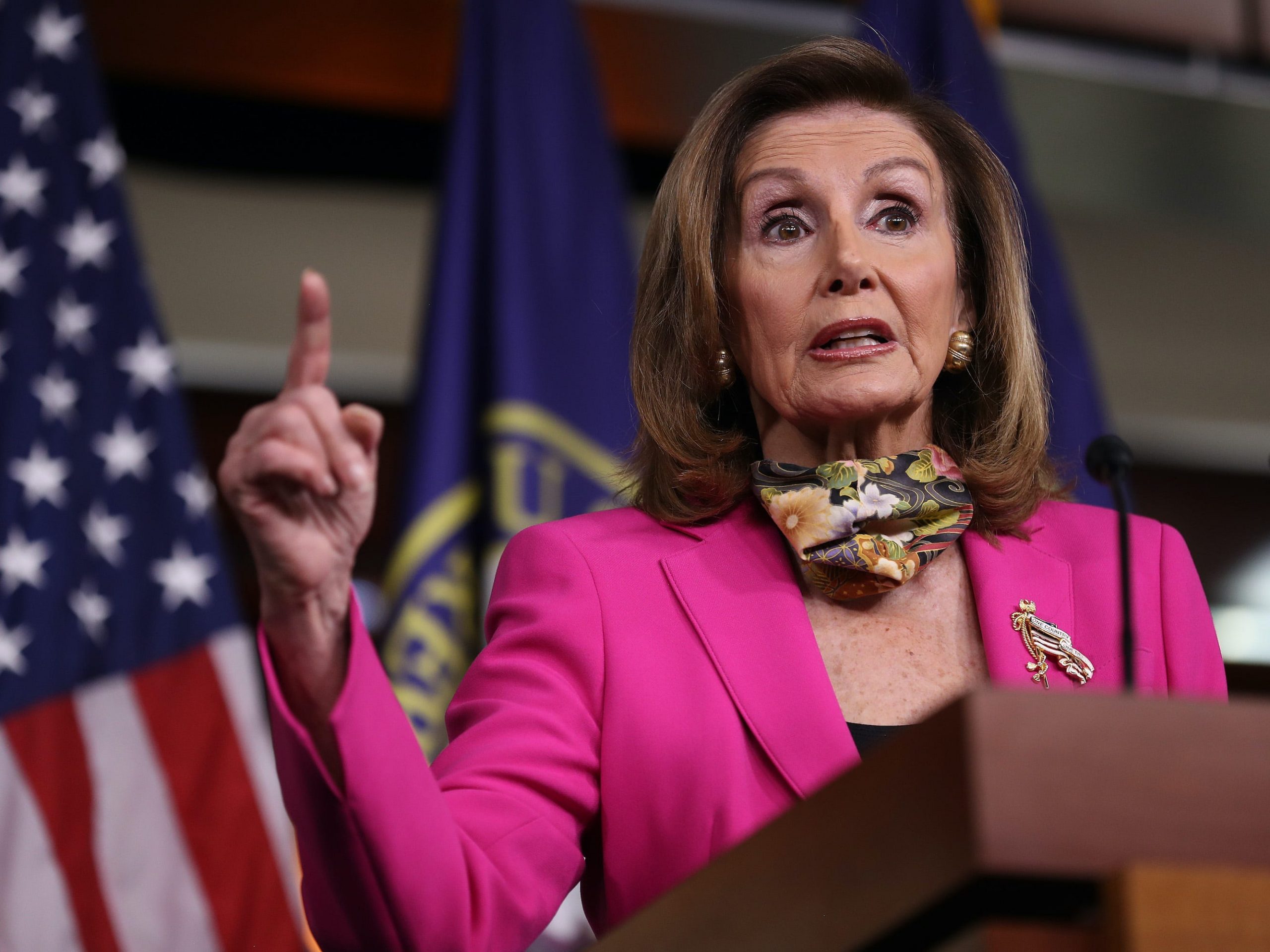
Chip Somodevilla/Getty Images
- House Speaker Nancy Pelosi slammed Facebook during a new interview with The New York Times’ Kara Swisher.
- Pelosi said she holds Facebook “very accountable” for posts on the platform in support of QAnon, a right-wing conspiracy theory that claims, in part, that Democratic Party leaders are involved in child sex trafficking.
- “I don’t know how the Facebook board of directors or their top employees can look themselves in the mirror,” Pelosi said. “They have clearly chosen. Their business plan is to make money off of poison, and that’s the path they have chosen to go.”
- Pelosi has criticized Facebook in the past, particularly after the company last year refused to take down a doctored video that made her appear drunk.
- Visit Business Insider’s homepage for more stories.
House Speaker Nancy Pelosi blasted Facebook executives and employees as “totally disreputable” over the prevalence of posts touting the right-wing conspiracy movement QAnon.
Pelosi made these comments in an interview with Kara Swisher on the first episode of Swisher’s new podcast with The New York Times, called “Sway,” which premiered Monday. During the course of the interview, Swisher brought up QAnon, the far-right conspiracy movement popular among some of President Donald Trump’s supporters that claims a group of society’s elite, including leaders in the Democratic party, are conspiring to commit a variety of heinous crimes, including child sex trafficking.
While QAnon is said to have originated on the anonymous online messaging board 4chan, in recent months, QAnon posts have become more widespread on mainstream social media sites like Twitter and Facebook. Both companies have announced plans to crack down on QAnon accounts.
Swisher asked Pelosi how much she holds Facebook accountable for QAnon content appearing on the site, to which Pelosi responded, “I hold them very accountable.”
Pelosi also blamed Facebook for its role in the 2016 election, another time the company came under fire for insufficient moderation ahead of an election. Special counsel Robert Mueller found that Russian operatives significantly used Facebook in its campaign to interfere with the election.
"In 2016, when the Russians interfered in our election and rubles were coming in and they had to know that these were not on the level of American sites, they said, well, we never thought to look at that. So they played that role in that election," Pelosi said.
"I don't know how the Facebook board of directors or their top employees can look themselves in the mirror," she continued. "They have clearly chosen. Their business plan is to make money off of poison, and that's the path they have chosen to go."
A spokesperson for Facebook did not immediately respond to Business Insider's request for comment on Pelosi's remarks.
In response to misinformation on Facebook, Pelosi said she's looking at Section 230 of the Communications Decency Act, which was signed into law in 1996. The law stipulates that companies that operate online forums, such as Facebook, cannot be considered publishers and therefore cannot be held liable for the content that appears there.
It's not clear whether Pelosi would support a repeal of the law — she told Swisher that any action taken would have to be handled carefully so as not to hurt smaller platforms or endanger free speech, but also ensure that Facebook is not being enabled to "just get rich at the expense of our democracy."
Section 230 may be one area where Pelosi and Trump agree. The provision has become a target of Trump's over the last several months, particularly after Twitter fact-checked his tweets in May. Trump then signed an executive order that threatened to penalize social media companies over perceived bias against conservative users.
While Pelosi's comments about Facebook are the sharpest rebuke of the social network to date, she's spoken out about misinformation on the platform in the past. In January, Pelosi called Facebook "irresponsible" and accused the company of "schmoozing" the Trump administration. And in 2019, she ripped into Facebook over its refusal to take down a falsified video that appeared to show her slurring her words, as if she were drunk.
"I think they have proven — by not taking down something they know is false — that they were willing enablers of the Russian interference in our election," Pelosi said at the time.

